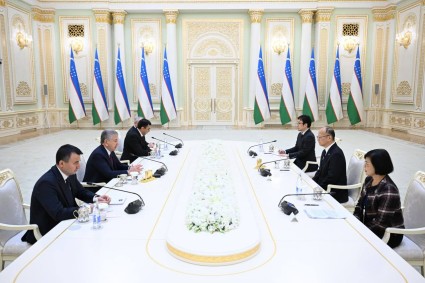Payment through cash could be limited and wholesale sale of a number of items could be shifted to non-cash payment. This was discussed at a presentation made to the president on February 13.
To improve tax administration, it is planned to develop a draft presidential decree on additional measures to expand the use of bank cards and electronic payment system services.
From April 1, it is proposed to introduce non-cash payments through mandatory connection to the electronic payment systems of the following organizations:
- budget-financed services organizations;
- legal entities selling oil and gas products;
- legal entities engaged in providing property for rent;
- construction organizations that sell real estate. Payments for apartments are planned to be made in non-cash form with an electronic invoice.
Meanwhile, the decree could propose to approve new rules for retail and wholesale trade in Uzbekistan.
From April 1, it is proposed to introduce a procedure for registering the receipt of goods purchased for cash in the E-Ombor (E-Aktiv) system of the Tax Committee.
It is also proposed to set a limit of 100 million soums for making payments in cash.
It is planned to transfer wholesale trade in wood for construction, metal (sheet iron, fittings, aluminum profiles), car tires and sugar to a non-cash payment.
In December 2023, Deputy PM Jamshid Kuchkarov reported that a draft presidential decree had been prepared to reduce the circulation of cash to combat the shadow economy.
At the beginning of the year, the president Shavkat Mirziyoyev stated that the losses to the state budget of Uzbekistan from the shadow economy is estimated at 30 trillion soums, and the damage to GDP at 135 trillion soums. Almost 11 thousand developers (41%) indicated only 1 employee in their reports.
From February 1, Uzbekistan will launch an entrepreneurial sustainability rating, which will encourage properly operating businesses and encourage them to come out of the “shadow”.












